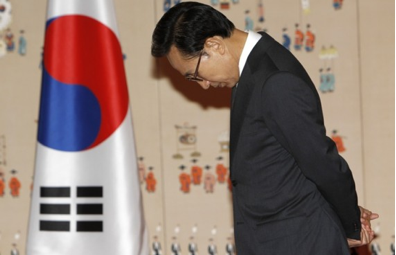It would have been exceedingly awkward to show up in Seoul for the November G20 meeting with nothing to offer.’ Or as I put it a bit more bluntly on this blog back in May, ‘Here’s the thing about trade policy: the United States can’t be a leader in Asia without one.’
The good news is that the President has now instructed US negotiators to wrap things up in time for his November visit to Seoul. And, in the meantime, he’ll have to gird his administration for the coming fight with a bevy of unhappy constituencies: on Capitol Hill, in labour, and ultimately within his own party.
But watching the administration prep the ground on KORUS, I couldn’t help but wonder whether an FTA of this scope would ever have moved forward had the relationship at stake not been with the Republic of Korea.
Why Korea?
Well, for one thing, Obama and Korean president Lee Myung-bak have forged what is, by all accounts, an unusually close rapport. Washington and Seoul have drawn closer during Lee’s two-and-a-half years in office. And for the first time in a decade, the United States, quite clearly, views South Korea not just as an important alliance partner but as a genuinely predictable one.
Then there’s North Korea’s March 26 sinking of the South Korean naval corvette, Cheonan. That event further tightened the increasingly close relationship between Washington and Seoul. It has yielded expanded defence cooperation and closer political cooperation. And these, in turn, should pay strategic dividends for both countries down the road.
Still, I’d like to think the move on KORUS has a lot to do with Korea itself.
The narrative about Asia’s rise to global influence is, in its essentials, a story about Asia’s biggest powers—notably, China and India. And in a different sense, I suppose, the story of Asia and the world involves a parallel (and less exultant) narrative these days about an increasingly conflicted and uncertain Japan.
Yet, in subtle ways, Korea can stake its claim to this extraordinary story too.
Led by a former CEO, Korea is stepping out. It hosts the November G20 summit, and will also host a follow-up to April’s Washington nuclear security summit.
But even more important, Korea is bouncing back strongly from the global economic crisis at precisely the moment when Japan and so many other industrial powers are continuing to struggle with debt, unemployment, low growth, or market volatility.
There are several reasons for this. All of them merit notice.
Lee’s administration has pursued an expansionary macroeconomic policy that, like many countries, has included a heavy dose of stimulus. But low inflation and Korea’s strong recovery have coincided with the Bank of Korea keeping interest rates at a historic low of 2 per cent. The OECD and the IMF now predict Korean growth in 2010 will rebound to as much as 5.8 per cent. The IMF’s previous estimate was a much lower 4.5 per cent, and even that 4.5 per cent number was pretty remarkable these days for an OECD country.
Renewed ferment among labor unions and even new capital controls have been met with something of a yawn. And so Korea has some flexibility and running room—even in the face of continuing economic troubles in Europe and the United States.
But here’s the thing: Seoul’s aspirations to burst the boundaries of the Korean Peninsula—to become a bigger global player—continue to bump up against the confining realities of its unhappy strategic geography.
There must be a hundred books and articles with titles like ‘Korea’s Future and the Great Powers.’ But, even if Korea avoids being caught between Beijing and Tokyo (and perhaps Washington too, to at least some extent), it’s still stuck next door to the ultimate drag on its aspirations: North Korea. As tensions with Pyongyang have intensified since March, it’s worth remembering that Pyongyang has so much less to lose than Seoul, which, as nearly every South Korean will tell you, has everything to lose from a confrontation.
Can South Koreans lift their gaze beyond North Korea and their Peninsula? Can they even afford to? Regional and global aspirations are, in too many ways, still a luxury for today’s South Korea. Yet what’s remarkable isn’t just how far South Korea has come but also how many fresh opportunities have emerged from the global economic crisis. Koreans are, in interesting ways, positioning themselves for a more competitive future.
Newsweek put this point nicely back in January: Korea is transitioning from ‘a successful but self-involved economic power into a respected global soft power.’ Korean politics remain among the most contentious in East Asia. And opposition successes in recent provincial and municipal elections promise plenty more ferment (and plenty more policy gridlock) ahead. But Korea has an increasingly global outlook—and, probably for the first time, some clout to back it up. Watch this space.
Evan A. Feigenbaum is a Senior Fellow at the Council on Foreign Relations.
This article was first published here by the Council on Foreign Relations’ Asia Unbound blog.


This is an excellent piece which eloquently outlines Korea’s potential, and its limitations. I very much enjoyed reading it.